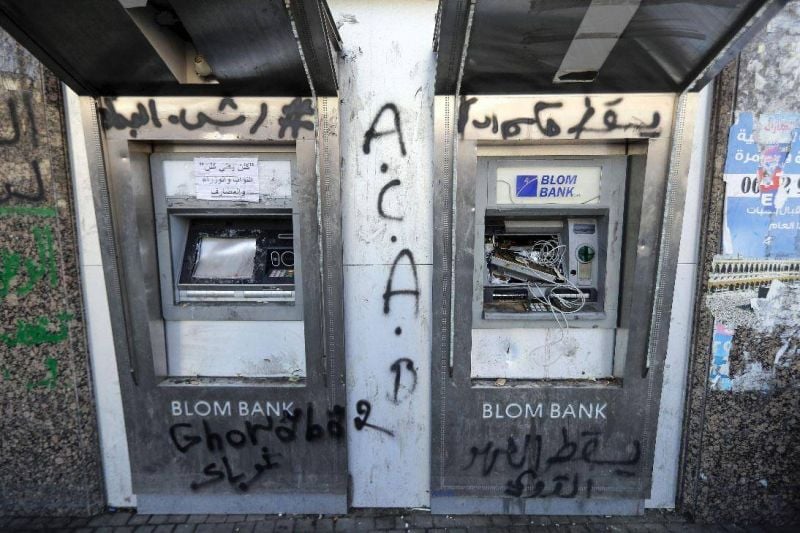
Lebanon’s banking system has ground to a near halt as bank’s liabilities vastly outstrip their assets and capital. (Credit: Joseph Eid/AFP)
Lebanese bank depositors are likely to face a financial hit in order for the country’s banks to absorb the cost of the country’s debt restructuring, S&P Global said in a new report.
Given their large holdings with state institutions, Lebanon’s banks are at the center of a financial crisis that has dragged on for more than a year since the government defaulted on its foreign currency obligations in March 2020.
Their customers have largely been frozen out of their dollar deposits and blocked from transferring cash abroad since unrest flared in late 2019.
“With banks struggling to raise capital, we believe bailing in depositors, in some form, is likely if the banking sector is to absorb the high costs of restructuring,” said S&P credit analyst Mohamed Damak.
Lebanon’s central bank chief Riad Salameh said on Monday that depositors’ money was safe and they might soon be able to access some of their dollars.
S&P said shareholder or external funding alone will probably be insufficient to absorb the cost of restructuring.
Bailing in depositors, for example, by paying them below-market exchange rates, or converting deposits into equity seemed highly likely, S&P added.
The full extent of banks’ losses will materialize only once government debt restructuring takes place, S&P said.
Under various scenarios, S&P said the cost of restructuring Lebanon’s banking system could range from $23 billion to $102 billion, amounting to 30 to 134 percent of nominal GDP.
“Resolving the political deadlock in Lebanon is critical to starting the restructuring process, and delays could complicate a recovery,” said S&P credit analyst Zahabia Gupta.
“The main stumbling block to restructuring appears to be that Lebanon is currently functioning with a caretaker government without authority to agree terms with creditors.”
The existing government has been acting in a caretaker capacity since resigning after a huge explosion in a portside warehouse tore through Beirut in August. The blast further complicated the task of rescuing an economy that has been in a tailspin since late 2019.
As of March 31, domestic banks held about 60 percent of their assets in the form of central bank deposits and certificates of deposit and 11 percent in government treasury bills and eurobonds, S&P said.